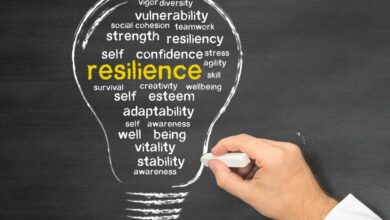How to Learn Self-Compassion as an Adult 💖🌱

In a world that often pushes us to be perfect and productive all the time, learning to be kind to ourselves can feel strange or even uncomfortable. 😕 However, self-compassion is a powerful tool that can boost your mental well-being, increase resilience, and improve your relationships. Let’s dive into how you can start learning self-compassion as an adult. 🌟
1. Recognize Your Inner Critic 🗣️
Many of us have an inner voice that constantly critiques everything we do. Before you can embrace self-compassion, you need to acknowledge this critical voice. 💬 It’s that inner dialogue that tells you, “You’re not good enough” or “Why did you make that mistake?”
Instead of listening to it, imagine speaking to yourself the way you would speak to a dear friend. Would you be harsh, or would you offer kind and supportive words? Be your own best friend! 🌻
2. Practice Self-Forgiveness 🙏
Making mistakes is part of being human, yet we often hold ourselves to impossibly high standards. 🤯 Self-compassion means forgiving yourself when you slip up. Recognize that everyone makes mistakes, and it’s okay to learn from them rather than punishing yourself endlessly. Remember, it’s not about being perfect; it’s about progress. 🌿
3. Engage in Self-Soothing Rituals 🧘♀️
Whenever you’re feeling stressed or overwhelmed, having a few comforting rituals in place can help you reset. 💆♂️ Whether it’s deep breathing, a warm bath, journaling, or a mindful walk in nature, taking care of yourself physically can also help ease emotional tension. Find what helps you relax and give yourself permission to take a break. 🍵
Related Post
4. Challenge Unrealistic Expectations 🛑
Sometimes, we place unrealistic expectations on ourselves—whether it’s at work, in relationships, or our personal goals. 🏃♂️ When those expectations aren’t met, self-criticism often follows. Part of learning self-compassion is recognizing when you’re setting the bar too high and giving yourself the grace to adjust. It’s okay to not do everything perfectly, and it’s okay to rest! 💆♀️
5. Embrace Imperfection 🌸
Perfectionism is one of the biggest barriers to self-compassion. 🌼 Accepting that you’re not perfect—and no one else is, either—frees you from the pressure to always “get it right.” Rather than striving for flawlessness, aim for authenticity and growth. 🌱
When you make a mistake, instead of spiraling into self-blame, remind yourself: “It’s okay. I’m learning. This is part of the journey.” 🛤️
6. Develop a Mindfulness Practice 🧘♂️
Mindfulness allows us to observe our thoughts and feelings without judgment. 🌿 It can help you become more aware of when you’re being hard on yourself, and more importantly, it gives you the opportunity to pause and offer yourself compassion instead.
There are many ways to practice mindfulness: meditation, breathing exercises, or simply being present in your daily activities. 🌸 By cultivating mindfulness, you can learn to catch yourself in the act of self-criticism and choose a kinder, more compassionate response. 🌻
7. Surround Yourself with Supportive People 💞
Building self-compassion doesn’t mean you have to do it alone! 🌈 Surrounding yourself with people who lift you up, offer encouragement, and model self-compassion can make a huge difference. Whether it’s friends, family, or a therapist, having a supportive network can help you practice being kinder to yourself. 🤗
8. Daily Affirmations 🌟
Positive affirmations are a great way to rewire your brain for self-compassion. 💖 Try saying things like, “I am enough,” “I am worthy of love and kindness,” or “I am doing the best I can.” Repeating these messages can slowly transform your inner dialogue from one of criticism to one of acceptance and love. 🌷
Learning self-compassion as an adult can be challenging, but it’s one of the most valuable investments you can make in yourself. 💖🌿 The journey is ongoing, but with small steps, self-awareness, and mindful practices, you can cultivate a kinder, more understanding relationship with yourself. So, take it one day at a time—and remember, you deserve your own compassion. 🌟💫
Now tell me, what self-compassionate practice will you try first? 😊💬




